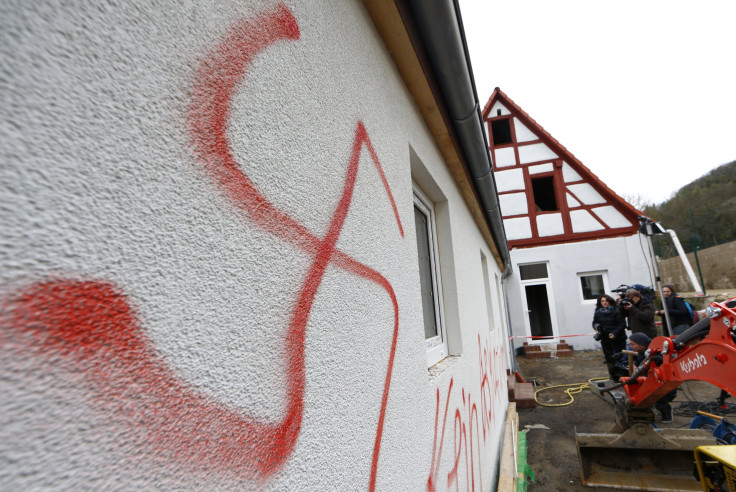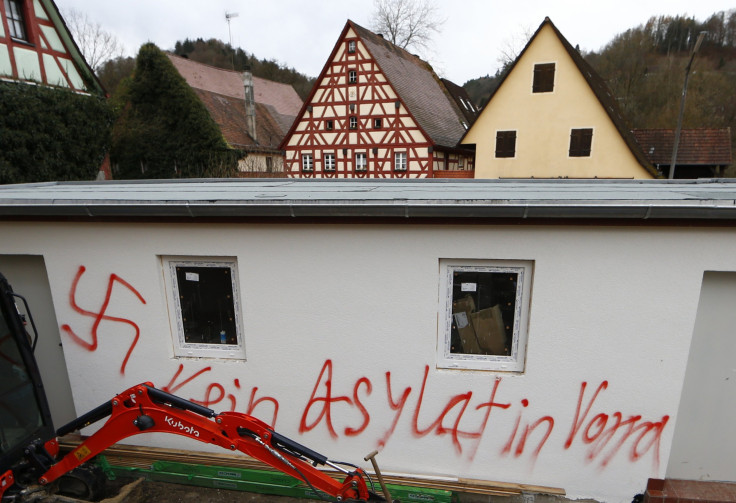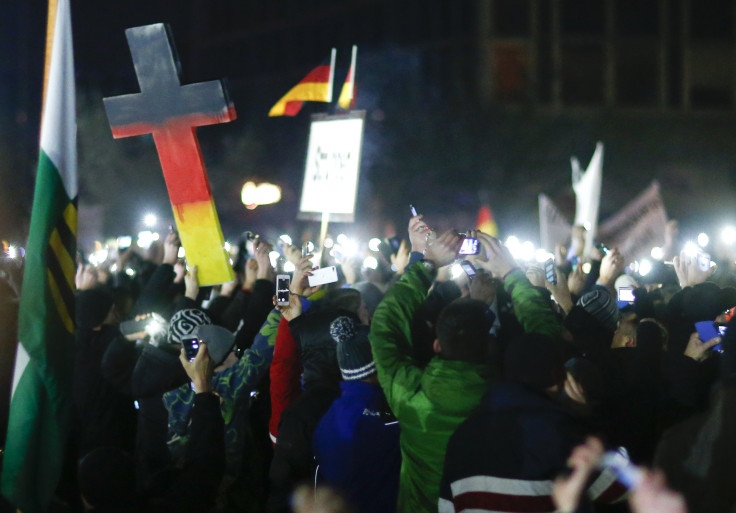Germany Nazi Arson: Swastikas And Graffiti Suggest Syrian Refugee Housing Was Purposely Torched

A week of growing anti-Muslim demonstrations in the eastern German city of Dresden ended in what authorities said was racially motivated arson of refugee housing in the southern German city of Vorra, Bavaria, on Thursday night. Three buildings that were recently renovated to house Syrian refugees in the future were burned beyond livability, authorities told Deutsche Welle. Others were tagged with swastikas and graffiti that read "No asylum-seekers in Vorra!" Damage to the buildings is estimated to be around $868,000, although no one was injured in the blazes.
Bavaria’s interior minister said that security will be stepped up at refugee housing across Bavaria, according to the Associated Press. The ruling conservative party in Bavaria, the Christian Social Union, had to abandon a proposal this week that would have required immigrants to not only speak German in public, but also at home, after considerable backlash from the public.
The CSU is allied with Merkel’s Christian Democratic Union, which this week debated a ban on the burqa, a full-body covering many Muslim women wear. France, Belgium, Italy and the Netherlands each have varying prohibitions on anyone wearing a burqa or any other full-face covering.

Merkel condemned the attacks “in the strongest terms,” according to her spokeswoman, Christiane Wirtz. Merkel’s office also had strong words for the Dresden marches, which drew a crowd of 10,000 on Monday in opposition to Germany’s growing refugee population. Wirtz said, “There is no place for Islamophobia, anti-Semitism or any form of xenophobia or racism” in Germany, according to Reuters.
The marches were organized to “preserve” a free-thinking and open lifestyle in Europe, according to their organizers calling themselves PEGIDA, or Patriotic Europeans Against the Islamization of the West. Police said there were radical, potentially violent, elements involved in the marches, but a majority of marchers were relatively moderate, according to Deutsche Welle.

Germany has received the largest number of asylum applications in Europe over the last two years and that trend is expected to continue, according to the United Nations High Commissioner for Refugees (UNHCR). The high commission estimated there were over 323,000 asylum seekers and refugees living in Germany, as of January 2014.
More extreme demonstrations have taken place sporadically around Germany this year, including a 4,000-strong march in Cologne that turned violent and left 43 police injured. Police confiscated machetes, batons and a loaded handgun from rioters.
© Copyright IBTimes 2025. All rights reserved.






















